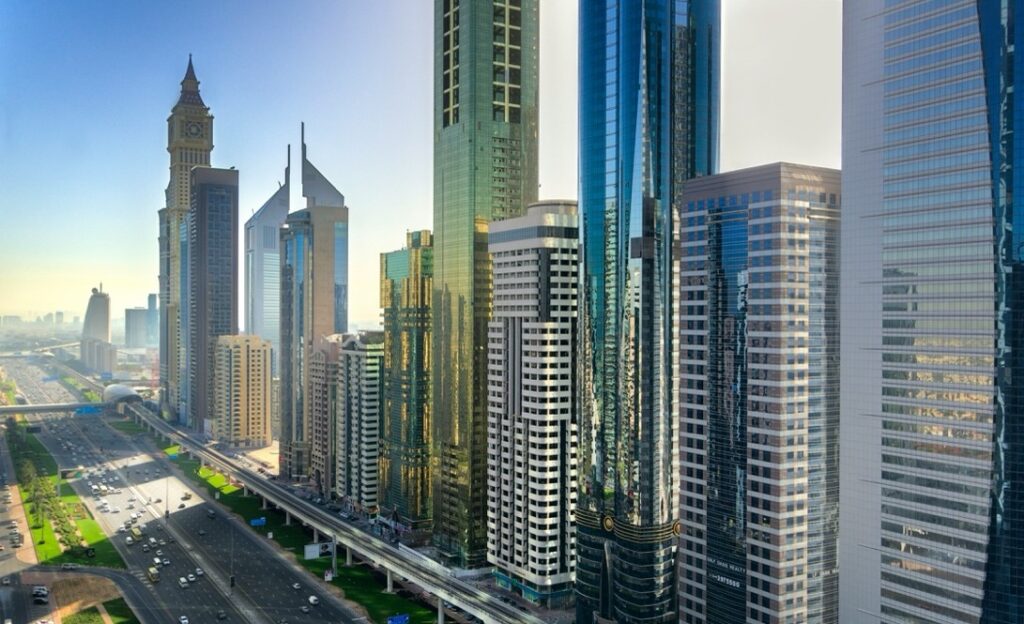The UAE economy is now regarded as one of the most active business environments globally, thanks to a dynamic and competitive domestic and foreign private sector. In this context, the country has implemented several ambitious economic initiatives aimed at increasing its ability to attract foreign capital and strengthen its global economic positioning. In 2022, the U.A.E economy experienced a record growth rate in over a decade.
The Dynamic and Innovative UAE economy
In the face of international economic challenges, investors are now focusing on five key sectors, including healthcare, transportation and logistics, agriculture and food security, technology, and green energy. To meet the growing demand in these sectors, the United Arab Emirates has invested in cutting-edge technology and high-level skills.
Furthermore, the country aims to adopt a more open development model in line with its leaders’ future vision and the U.A.E’s centennial in 2071. The economic initiatives launched in recent years aim to enhance the country’s ability to address new economic concepts, such as virtual reality, data revolution, and artificial intelligence, particularly in the field of education.
In 2022, the U.A.E economy experienced a record growth rate in over a decade, despite the global economic slowdown. The country also recorded 2 trillion AED in foreign trade while maintaining its position among the top 12 tourist destinations worldwide, attracting more than 10 million tourists annually. The U.A.E has thus grown from $10 billion in 2018 to nearly $21 billion in 2021.
According to the Minister of Economy of the United Arab Emirates, Abdulla bin Touq Al Marri,
He states:
“The country’s foreign trade also totaled 2 trillion AED, and it maintained its position among the top 12 tourist destinations worldwide by attracting over 10 million tourists annually. FDI (Foreign Direct Investment, ed.) grew from $10 billion in 2018 to nearly $21 billion in 2021.”
According to Abdulla bin Touq Al Marri, investment indicators were positive in 2022, reflecting ongoing confidence in the country’s economic growth. The U.A.E continues to attract international investors due to its ambitious economic initiatives and ability to adapt to current economic challenges.

The U.A.E’s Ambitious Economic and Environmental Initiatives
Uniper, a German gas company, and Masdar, a U.A.E-based renewable energy company in Abu Dhabi, have announced a partnership to build a green hydrogen plant in the United Arab Emirates. The announcement was made by Mohammad Abdelqader El Ramahi, a Masdar official, who stated that the plant would be powered by 1.3 GigaWatts of solar energy, allowing for the production of green hydrogen. The plant is expected to be operational by 2026 and will contribute to reducing greenhouse gas emissions in the U.A.E, while strengthening their position as a leader in renewable energy in the region.
Established in 2006 by Abu Dhabi’s sovereign wealth fund, Masdar is now the largest producer of clean energy in the region. As the U.A.E has committed to achieving carbon neutrality by 2050, Masdar is at the forefront of their energy transition strategy. Currently, the company already produces 20 GigaWatts of green electricity, and it aims to increase this figure to 100 GigaWatts before 2030. Masdar is thus a key player in the fight against climate change and the transition to more sustainable energy sources.
Abu Dhabi is competing with Saudi Arabia for regional leadership in all high-value-added sectors. Both Riyadh and Abu Dhabi aim to reach 50% renewables in their energy mix by 2030, up from less than 1% today. The construction of one of the world’s largest solar power plants has just begun in Mecca, and it will be operational in two years.
The United Arab Emirates faces a significant challenge in reducing its dependence on fossil fuels and promoting the development of renewable energy to diversify its economy and ensure its energy transition.




